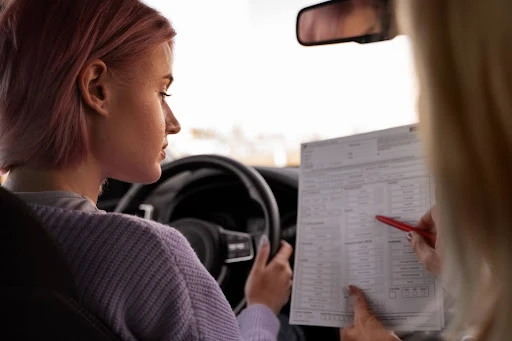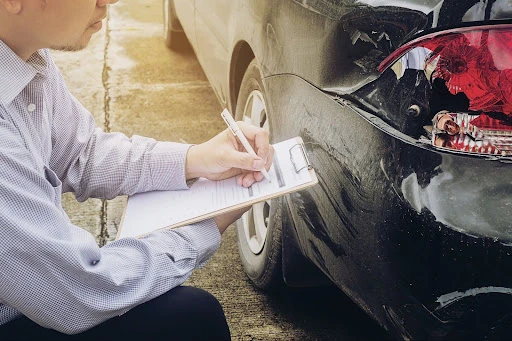Indianapolis Drunk Driving Accident Lawyer
Helping people is our priority



Since 1993

Seeking Justice for OWI Crash Victims Throughout Indiana
Most people know that drunk driving is illegal and can cause serious car accidents, but unfortunately alcohol-impaired driving is still a major concern in the United States. In 2018 alone there were 10,511 alcohol-impaired driving fatalities nationwide, and 11,890 DUI arrests were made that year in Indiana.
If you’ve been injured in a crash by a drunk driver, it’s likely you’re eligible to file a claim for compensation citing negligence. Christie Farrell Lee & Bell has over 120 years of combined legal experience and has handled all kinds of car accident claims, including those involving alcohol impairment. Our Indianapolis drunk driving accident lawyers are available to help you recover from serious injuries you may have acquired.
Speak with a personal injury lawyer today. Call: 317-488-5500
What Are Indiana’s Drunk Driving Laws & Penalties?
While we widely use the term “driving under the influence” (DUI) to refer to drunk driving-related accidents in the United States, Indiana officially uses the term “operating while intoxicated,” or OWI. Indiana’s OWI laws prohibit all individuals from operating vehicles when their blood alcohol concentration (BAC) is .08% or higher, when they have any amount of a schedule I or II controlled substance in their system, or when they’re actually intoxicated by drugs or alcohol.
Indiana’s list of substances that fall under their schedule I and II classes include:
- Cocaine
- Hallucinogenic drugs
- Marijuana
- Methamphetamine
- Opiates
Like most other states, Indiana also has a “zero tolerance” law that makes it illegal for drivers under 21 years of age to operate a vehicle with a BAC of .02% or more. When individuals are found guilty of drunk driving, they may face numerous penalties that vary in severity depending on the offense. For example, a first offense OWI conviction is usually considered a misdemeanor and involves fines of up to $500, possible jail time, and a temporary license suspension. A felony, however, can result in imprisonment up to two and half years and up to $10,000 in fines.
Many individuals who are injured in drunk driving accidents assume they’ll be compensated in some way during these criminal charges, but this isn’t true. The one way you can get the compensation you’re entitled to after an accident is through filing a civil claim, also known as a personal injury claim.
Complete a Free Case Evaluation form now
How Intoxication Leads to Car Crashes
Alcohol can impair the mind and body in significant ways, affecting our judgment as well as our coordination – both of which all drivers rely on to navigate roads safely. Drivers are expected to operate vehicles in a safe manner, which requires alertness and the ability to act quickly when an emergency occurs. When drivers fail to do so, they’re violating the duty of care they owe other drivers on the road – this is why injured drivers and passengers are usually able to successfully file injury claims against drunk drivers.
Some of the effects alcohol has on a person’s driving include:
- Slowed reaction times: Alcohol greatly slows down our reflexes, meaning that drivers are less likely to swerve or brake quickly to avoid a road situation like slowed traffic or a car suddenly changing lanes in front of them. Drivers may also be too slow to stop at a red light or stop sign and completely drive through them.
- Blurred vision: Alcohol can also impair our vision, which is why the phrase “seeing double” is often associated with late nights out. This is understandably a dangerous condition to be in when you’re required to stay in your lane and look out for your surroundings.
- Reduced concentration: Drunk drivers are also known to have decreased concentration, which is dangerous when on the road. Drunk drivers may also experience drowsiness, preventing them from noticing sudden changes or traffic signals. When drivers doze off, they can lose control of their vehicle entirely.
- Reduced coordination: Operating a vehicle requires the ability to multitask and navigate between various movements and controls, from braking and accelerating to holding the wheel and signaling before making a lane change. Alcohol heavily hinders an individual’s coordination.
- Impaired judgment: Drunk people are more likely to take risks and make decisions without thinking, which is why so many impaired individuals start fights or get arrested. Drunk drivers may feel tempted to speed, run red lights, or behave erratically and put others in danger.
Click to contact us today
What Constitutes Drunk Driving in Indianapolis?
In Indiana, driving under the influence is defined by specific blood alcohol concentration (BAC) limits, along with signs of impairment. Indiana has strict laws in place to deter and penalize drunk driving, helping to protect all road users. Understanding these limits and laws is crucial for both drivers and accident victims.
Blood Alcohol Concentration (BAC) Limits
Indiana law specifies the following BAC thresholds:
- 0.08% or higher for drivers 21 and older operating a private vehicle.
- 0.04% for commercial drivers, recognizing the increased responsibility these drivers have on the road.
- 0.02% or higher for drivers under 21, under a zero-tolerance policy for underage drinking.
Drivers with BAC levels above these limits are considered legally impaired and can face serious penalties, especially if their impairment leads to an accident.
Signs of Impairment
In addition to BAC limits, Indiana law also considers drivers to be impaired if they show signs of intoxication, such as slurred speech, erratic driving, and poor coordination. Drivers can still be charged with DUI based on observed impairment even if their BAC is below the legal threshold. This includes impairment from drugs, whether prescription, over-the-counter, or illegal substances.
Legal Consequences of Drunk Driving
Indiana has strict laws aimed at deterring and penalizing drivers who operate vehicles under the influence of alcohol. These penalties are designed not only to hold impaired drivers accountable but also to reinforce the severe risks they pose to public safety.
A DUI conviction in Indiana can lead to a range of consequences, depending on factors such as the driver’s blood alcohol concentration (BAC), whether it is a first-time or repeat offense, and whether the incident resulted in injury or death. DUI convictions have a lasting impact, often leading to significant financial burdens and limitations on personal freedoms.
- License suspension: Upon conviction, drivers often face license suspensions ranging from 90 days for a first-time offense to several years for repeat offenders. Suspension lengths can be extended when aggravating circumstances, such as high BAC levels or causing injury, are involved. For victims, this measure can provide some assurance that negligent drivers are temporarily removed from the road.
- Fines and jail time: Indiana imposes steep fines and potential jail time for DUI convictions. First-time offenders may receive shorter sentences and fines, while repeat offenders or those who caused harm face substantially higher penalties. If a drunk driving incident causes injury or death, the driver can be charged with a felony, leading to extended jail time and severe fines.
- Mandatory substance abuse programs: Offenders may be required to participate in state-approved substance abuse programs or counseling, aimed at reducing repeat offenses by addressing the root cause of impaired driving behavior. Courts often mandate these programs as part of probation, particularly for those with prior offenses, to promote recovery and reduce future risks.
Our experienced Indianapolis car accident lawyers at Christie Farrell Lee & Bell are available to provide the support you need, helping you understand how Indiana’s DUI laws apply to your case and working toward securing the full compensation owed for your suffering and losses.
What Are the Most Common Drunk Driving Injuries?
Drunk driving accidents often result in severe injuries, as impaired drivers typically have delayed reaction times and reduced ability to control their vehicle. Victims of these crashes can suffer a variety of injuries, ranging from temporary to life-altering. Some of the most common injuries include:
- Traumatic brain injuries (TBI): Impacts on the head during a collision can cause traumatic brain injuries, leading to memory loss, cognitive impairment, and other serious complications. Severe TBIs may require long-term or even lifelong care.
- Spinal cord injuries: Damage to the spine can result in partial or total paralysis. These injuries often demand extensive medical treatment, adaptive equipment, and ongoing physical therapy.
- Broken bones: The force of impact in a drunk driving accident frequently causes broken bones, which can range from minor fractures to severe breaks requiring surgical intervention.
- Internal injuries: High-speed collisions can damage internal organs, leading to potentially life-threatening conditions. Commonly affected organs include the liver, kidneys, and lungs, and internal bleeding is a critical concern.
- Burns: In severe accidents, especially those involving vehicle fires, victims may sustain burns that require surgery and ongoing care, often leaving permanent scars or functional limitations.
- Soft tissue injuries: Whiplash, sprains, and other soft tissue injuries are common and can cause lasting pain and limited mobility, affecting daily life and work capabilities.
An Indianapolis car accident attorney at Christie Farrell Lee & Bell can help you document your injuries and recover appropriate compensation to address your medical needs and restore your quality of life. By working closely with medical professionals, our attorneys can present evidence that reflects the severity and impact of these injuries.
What Kinds of Damages Can an Indianapolis Drunk Driving Accident Attorney Get for You?
An Indianapolis drunk driving accident attorney at Christie Farrell Lee & Bell can pursue multiple types of damages on behalf of victims, depending on the circumstances of the crash and its impact on the victim’s life. Legal claims often aim to secure compensation for both immediate and future needs, ensuring that victims are not left with the financial burden of an accident that was not their fault. Damages typically fall into two main categories: compensatory and punitive.
Compensatory Damages
Compensatory damages cover a wide array of economic and non-economic losses, including:
- Medical expenses: Compensation for both past and future medical expenses, such as hospital bills, surgeries, medications, rehabilitation, and assistive devices.
- Lost wages: Reimbursement for lost income due to time off work during recovery, as well as future lost earning capacity if the injuries prevent a return to work or require a change in job duties.
- Property damage: The cost of repairing or replacing your vehicle or other personal property damaged in the accident.
- Pain and suffering: Monetary compensation for physical pain, emotional distress, and any negative impact on quality of life.
- Loss of consortium: If the accident affects relationships with a spouse or family, victims may seek compensation for the impact on companionship and support.
- Rehabilitation and ongoing care: Many injuries, particularly those involving severe trauma, may require long-term physical therapy or mental health support. Damages can include the costs associated with these services, helping to provide the necessary care for recovery.
Punitive Damages
Courts may also award punitive damages in cases of extreme negligence, such as drunk driving. Unlike compensatory damages, punitive damages are not intended to cover specific losses but rather to punish the negligent party and deter future wrongdoing. However, punitive damages are capped in Indiana at the greater of $50,000 or three times the amount of compensatory damages. These awards highlight the court’s disapproval of drunk driving, emphasizing the recklessness of driving under the influence.
For a detailed look at potential damages available in car accident cases, victims can schedule a free consultation with an experienced Indianapolis drunk driving accident attorney. Every claim is unique, and an attorney will help ensure all eligible damages are pursued.
Call Us After Serious Injury
Drunk driving crashes tend to be more devastating, meaning that injuries to others involved will likely be more serious, too. If you’ve suffered a spinal cord injury or traumatic brain injury, for example, you may be tens of thousands of dollars in debt as a result of needing hospitalization, surgery, and additional medication. For months after being released, you may also have to undergo physical therapy.
Our personal injury lawyers want to make sure that our clients get the full amount of compensation available to them so they can cover their costs. When you call us, we can thoroughly investigate your accident and fight for your rights.
Indianapolis Office
951 N Delaware St Indianapolis, IN 46202
Phone: 317-593-9202

Get a FREE Case Review
Schedule Your Free Consultation


















